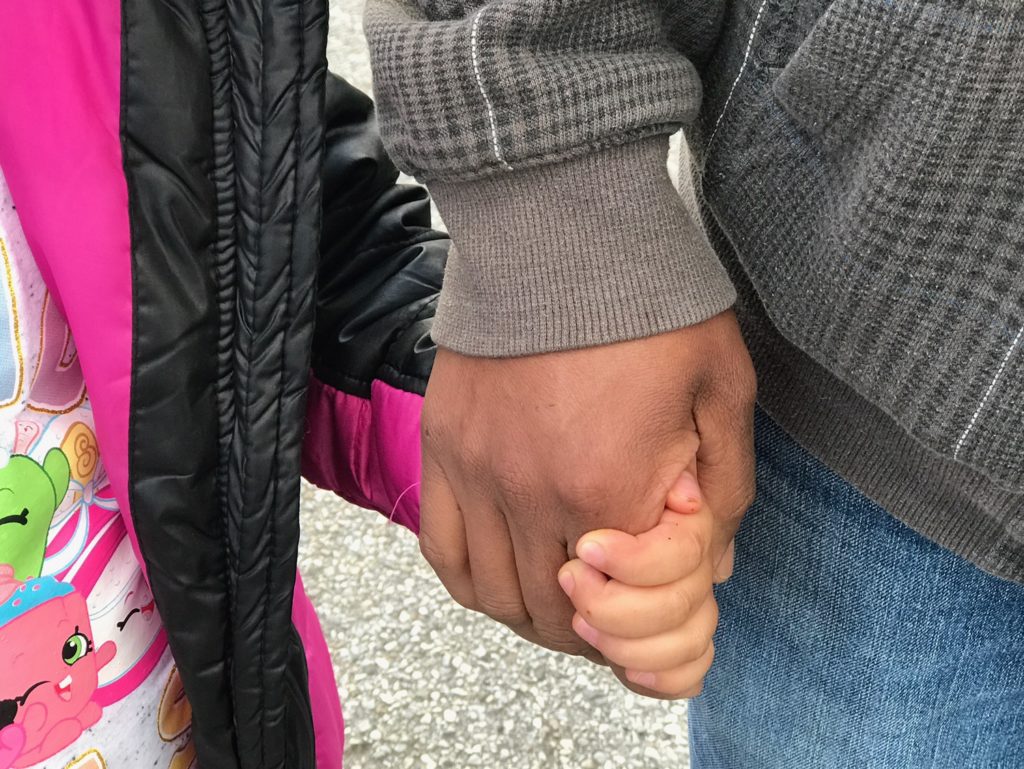
There isn’t a day that goes by that Arnoldo Salcido doesn’t look around at his life, shake his head, and smile. For the son of Oaxacan goat herders to end up in Pescadero, obtain a U Visa, and become a single father to a sweet and demanding 5-year-old girl… it all sounds so surreal.
And the best part is, he’s a happy man. Which is something he thought he would never be.
“I never imagined I would enjoy my life. But I do,” says Salcido, who works in a plant nursery outside Pescadero.
To hear his story is to understand why. Salcido left Oaxaca at 18 and journeyed across the dangerous border into California against his parents’ express wishes. He needed to make money to support his father, who wasn’t well and could barely put food on the table with the goats he raised and sold.
A few months later, Salcido ended up in Half Moon Bay, rooming with a cousin who found work for him cleaning offices. Then he met his future wife, Margarita. The problems started eight years into the relationship. Margarita became addicted to crystal meth, and her addiction became toxic for everyone – especially Salcido and their new daughter, Cleo. (All of their names have been changed for this story).
Margarita didn’t just have a drug problem. She also had a violence problem, and Salcido bore the brunt of it many times. When they finally divorced more than three years ago, Salcido felt he had to step up and raise his daughter alone, outside of her mother’s orbit.
“When I made the decision to stay with my daughter, a lot of people questioned me. They wanted me to leave my daughter with her mother,” he says. “I didn’t want to do that. I love her very much, she’s my blood and I wanted to look out for her.”
Now every day is daddy-daughter time. Salcido and Cleo live together in a trailer owned by his employer. Their favorite thing to do together is to go on walks when he comes home from work and picks her up at preschool. On weekends, she goes to the park and swims. Last summer they went camping.
“We play together. She makes me laugh. I feel a lot of joy with her,” he says. Although she has a few habits typical of stubborn 5-year-olds that make him roll his eyes. “She takes out all the clean clothes and leaves them all over the place, because she changes all the time,” he says, laughing. “She takes out all her toys and leaves a mess in the living room. Sometimes I feel despair.”
It’s a rich life, though still marked in many ways by the absence of Cleo’s mother. For years, Salcido saw a therapist at Puente to help him cope with the trauma he still carries from that time. His daughter still talks to a Puente counselor. And it was there, during one of his sessions, that Salcido’s counselor mentioned that he would eligible for a U Visa if he wanted to apply.
The U.S. government grants U Visas to victims of serious crimes, such as domestic and sexual abuse, who are willing to help law enforcement prosecute the offenders. In return, they can stay in the U.S. for up to four years with a work permit, and an option to apply for a green card after that. Their children receive the same benefits.
The decision to apply for a U Visa is one of hardest in anyone’s life. An applicant must be willing to describe their ordeal to an attorney, who makes a case to local law enforcement officers to support their claim. They need material evidence of the abuse. The process is daunting and emotionally distressing, says Rita Mancera, Executive Director of Puente.
“They suffer twice: when they were abused and then they go through the whole thing again.
I think they are very brave to go through this – very, very brave.”
At Puente, violence survivors in and around Pescadero have access to a team of 8 clinicians. With Puente’s support, ten locals have applied for U Visas in the last three years. The behavioral team helped them with their statements, and the immigration team helped them find the best attorneys.
All but one of the applicants have been approved. Of that number, Salcido is the only man to apply.
Mancera says she knows for a fact that more community members are eligible for a U Visa, but they won’t apply. “They don’t want to being those experiences back into their lives,” she says.
Expense is also a major factor. It’s free to apply for a U Visa, but even a low-cost attorney will charge up to $5,000. But here, too, Puente and its supporters showed up to assist. In 2015, Mancera made an appeal to the Peninsula Latino Giving Circle, a project of the Latino Family Foundation. She came away with a $10,000 grant to support local U Visa applicants.
It made a huge difference, says Mancera. “The magic of Puente is that when people hear these stories, they’re always willing to help. We tell participants: ‘Just trust yourself. The money – we’ll figure it out.’”
Like all the other parents, Salcido says he did it for his daughter. Even though she is American, having the U Visa ensures he will never be deported to Mexico; he will always be here to raise her and pick up the trail of clothes she leaves on bedroom floor. “I never imagined my life would be like this. We can travel without worry. I cook for her. Sometimes she helps me cook. I do everything a mom does,” he says.
This summer he’ll take Cleo to Mexico to meet her grandmother for the first time. It’s a different homecoming than he would have imagined 18 years ago.
It’s better.
To provide support for Puente’s immigration-related work, donate here.




